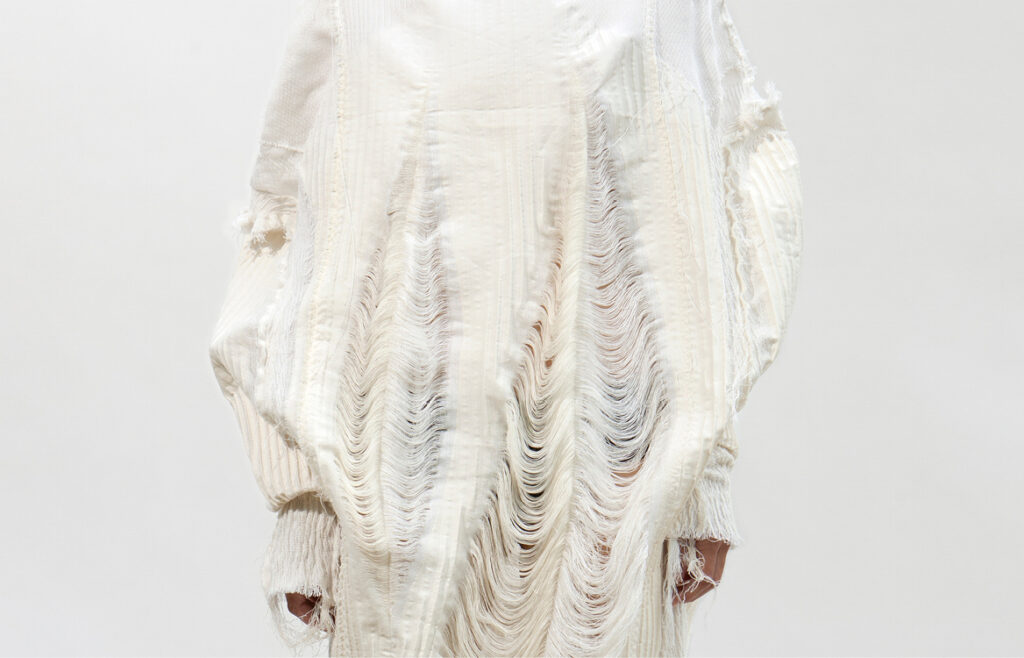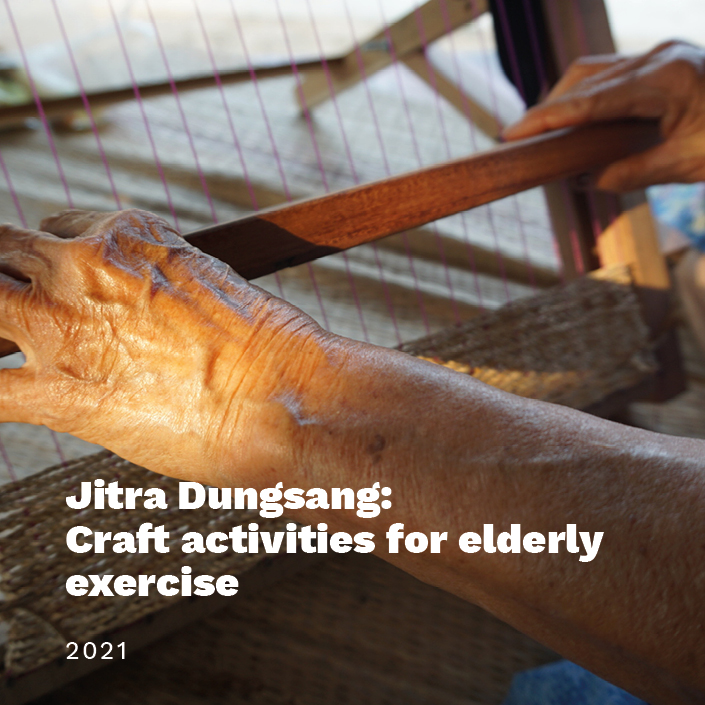2021
DR HOLLY MCQUILLAN: MULTIMORPHIC TEXTILE-FORMS
Multimorphic Textile-Forms explores the theoretical, aesthetic and technical development of systems and methods for zero waste textile-based forms. This presentation will explore a range of design experiments that deepened understanding of the existing context, and proposed methods and theory for a new understanding of the relationship between designer and system, textile and form.
Experiment 0 (2020) by Holly McQuillan, Karin Peterson, Riikka Talman and Kathryn Walters. Photography by Amanda Johansson.
Outside of fully fashioned or 3D knitting, methods for simultaneous textile-form design and construction are limited. Conventionally, weaving is a two-dimensional practice – which through cutting and sewing may become form. Cut-and-sew is the most common method of garment construction used in industry; however, it can also be exploitative, time-consuming and wasteful. The current shallow understanding of the relationship between woven textiles and form limits how designers could transform industries, the built environment and how we interact with it.
H||H Dress for WORTH 3rd call. Holly McQuillan and Studio Hilo (2021). Photography by Holly McQuillan
Questioning how technology can further shape form-making, this follows some of the lines of inquiry forged by the work of Issey Miyake and Dai Fujiwara in A-POC, and recent explorations on whole garment weaving by Anna Piper, Jacqueline Lefferts, and Claire Harvey, and is parallel to some of the recent work of Hella Jongerius. The research discussed aimed to expand the form-design methods available for whole garment weaving in the context of zero waste system design. The multimorphic and analogue-digital craft practice develops new understandings of textile design and manufacturing elements, such as jacquard looms and weave structures, for use in micro-manufacturing contexts. Its holistic and disruptive reshaping of form-making has the potential to future-make the industry, our cities and our social fabric.






